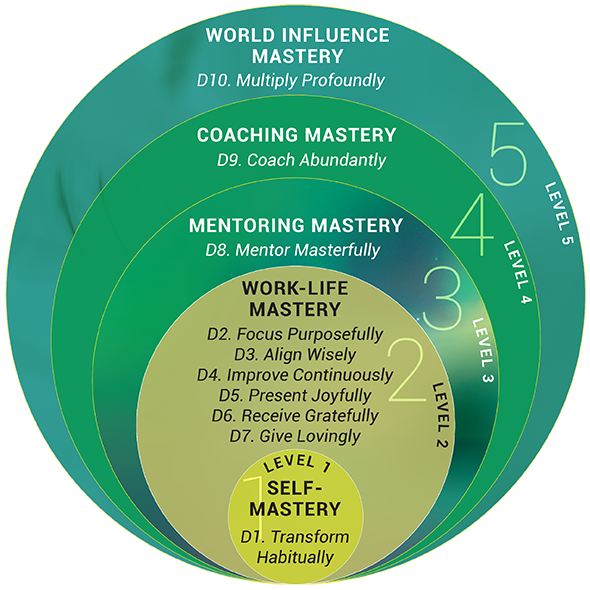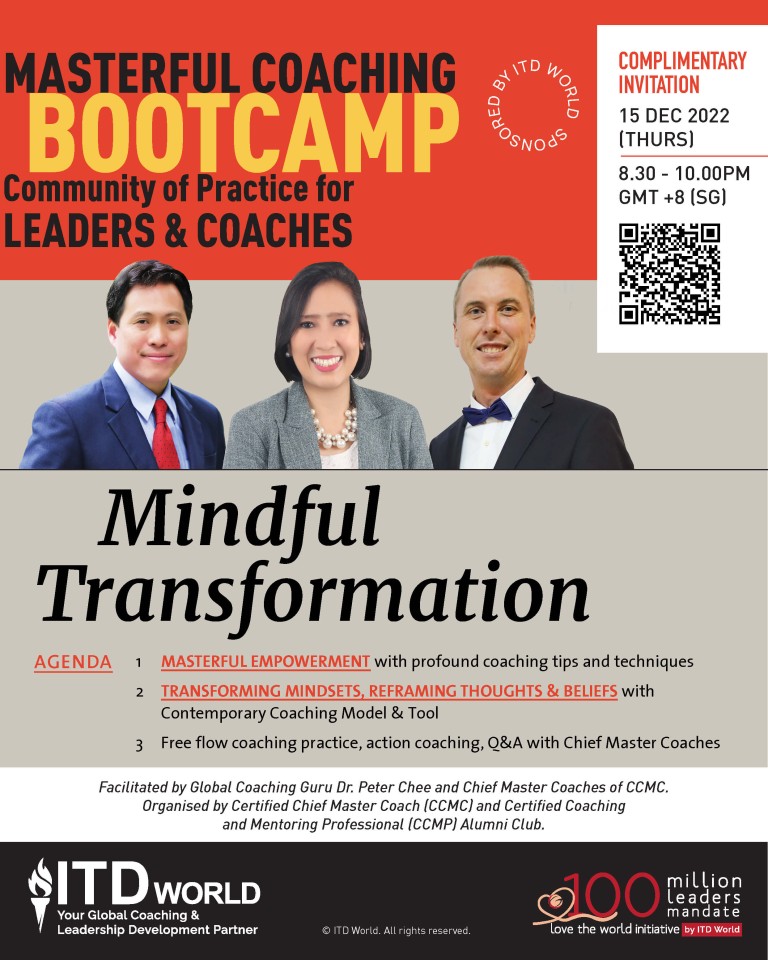

The essence of mastering systems thinking as a management discipline lies in seeing patterns where others see only events and forces to react to.
– Peter Senge


Often you have to rely on intuition.
– Bill Gates

EUREKA VIDEO
TRANSFORMATIONAL COACHING QUESTIONS
LATEST HAPPENINGS AT ITD WORLD
Get a head start by unleashing your potential to live an abundant life with the 5 Levels of Mastery! This book by Dr Peter Chee, Dr Marshall Goldsmith, and Aaron Ngui, is written to serve as your compass, companion, and coach in your life’s voyage for obtaining love, happiness, and success in abundance.5 LEVELS OF MASTERY FOR LOVE, HAPPINESS, AND SUCCESS

This book synergizes the expertise and learning from people like Peter Drucker, Zig Ziglar, Tony Buzan, Stephen Covey, Warren Bennis, Paul Hersey, and Jim Rohn among many others, and is based on extensive research and practice in coaching, mentoring, training, and developing leaders in over 80 countries for more than 30 years.
Drawing from the wisdom of these time-tested lessons, the authors have developed powerful approaches, models, and best practices that supports leaders worldwide achieve transformational growth.
Those who embrace the 5 Levels of Mastery develop empowering habits, find joyful purpose, and live fulfilling lives that inspire others. Get ready to take the first step on your part to Mastery @ Amazon!

FURTHER RESOURCES